Lifelong Learners Walk in the Footsteps of the Civil Rights Movement with Road Scholar
In 2023, after reserving a private program for The Civil Rights Movement: Atlanta, Montgomery, Selma, Birmingham, 24 members of the Osher Lifelong Learning Institute (OLLI) at the University of Denver immersed themselves in the geographical heart of the Movement.
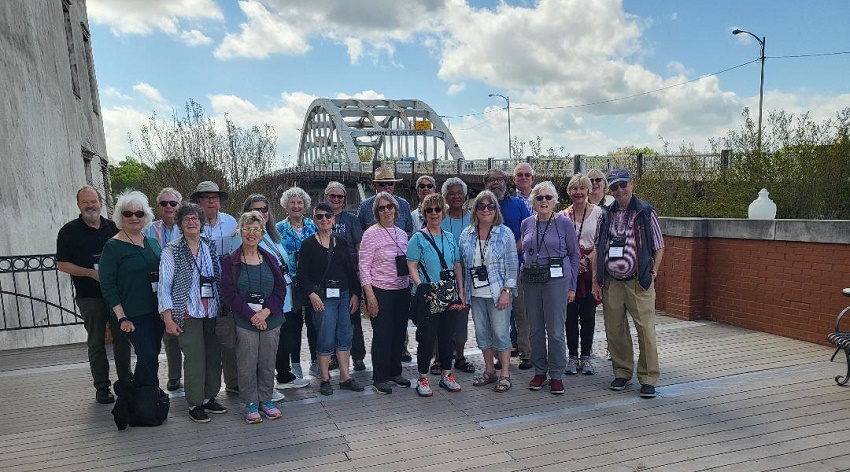
The OLLI group met activists who witnessed and participated in some of America’s most significant civil rights battles and visited historic sites of the 1950s and ‘60s, such as the Edmund Pettus Bridge, the location of the “Bloody Sunday” march, and the Sixteenth Street Baptist Church in Birmingham, a site bombed by the KKK that resulted in the deaths of four young girls. Walking in the footsteps of history with peers who were also alive during the Movement made the experience especially powerful. In fact, so deeply affected were they by what they experienced, the OLLI group plans not only to repeat the program, but those who participated were moved to write about this impactful experience.
Participant Kay T. said, “I found the depiction of the Middle Passage at the Legacy Museum to be breathtaking. As I stood in that room listening to the sound of the waves crashing and looking at the heads of those lost during the voyage, I imagined some distant relatives of mine, maybe from Nigeria or the Congo struggling to survive the journey.”
Pat P. saw parallels in her own life that changed the experience for her. “Activist and freedom fighter Dianne Harris shared her personal story about marching across the Edmund Pettus Bridge with her little brother in Selma, Alabama, in March 1965 when she was 15. On one of the marches, the sheriff's troops forced the protestors to retreat and then chased them as they ran. My granddaughter is 15 and her little brother is 12.” Using her perspective as someone alive during the Movement, while simultaneously thinking about her grandchildren made this interaction particularly evocative.
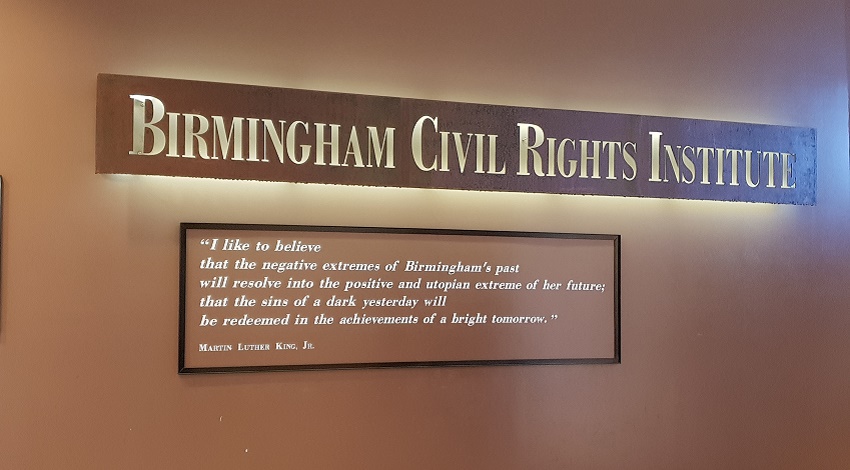
Sheila J., a retired high school teacher, reflected on her time at the National Center for Civil and Human Rights in Atlanta. Housed there is the original Woolworth’s lunch counter where four young black men took a stand against segregation in 1960, defying the “whites only” edict by sitting and refusing to leave after being denied service. Sheila watched as students from a visiting school group rushed to fill the empty seats. The first to reach the end seat declared loudly, “I’m here to claim my rights!”
She stood back, curious to observe their actions and reactions. “Within seconds,” she recalls, “a line of students formed all the way to the front door, eagerly awaiting their own turn to sit at the counter. I like to think the students I saw on those stools gathered strength there for the struggles we face today.” The scene brought to mind a passage by Coretta Scott King she heard while at the Dexter Avenue King Memorial Baptist Church: “The struggle is a never-ending process. Freedom is never really won. You earn it and win it in every generation.”
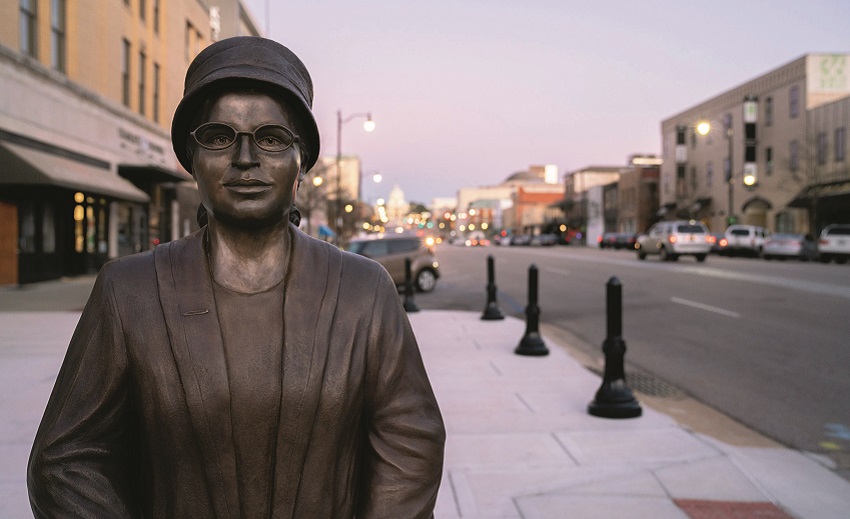
Injustice had been a lifelong interest for Carol S., who remembers watching the news every night and reading the paper every day to see and hear what was happening with the Civil Rights Movement. “The locations in this program added the experience of 'having been there,’” she says, citing Birmingham, Alabama in particular. “Perhaps I was feeling the cumulative effect of the entire trip, but Birmingham had been the site of truly heinous events, which I knew, but I wasn't expecting to have such a visceral response to what I saw there.” Especially moving for her was the monument Four Spirits in Birmingham's Kelly Ingram Park, a tribute to the four girls killed in the Sixteenth Street Baptist Church bombing on September 15, 1963.
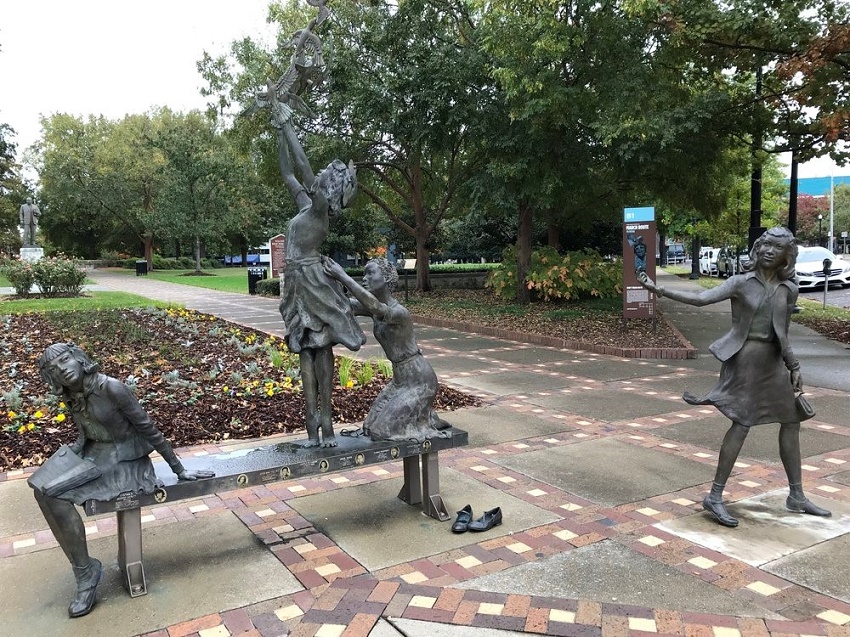
Artist and photographer Walter Naegle, the surviving partner of late American Civil Rights leader Bayard Rustin, also participated in the program. "While I was aware of the major events of the Civil Rights Movement in ‘real time,’" he says, “it was this particular program that really brought home the day-to-day humiliations that Blacks had to endure in the South. To achieve the progress they made through nonviolence is a great testimony to its power to overcome hate and violence."
Universally impactful, “those who participated in this program will never forget it,” says participant Gary W. “The human drama of courageous and committed protestors who used nonviolence to combat the depravity of the forces aligned against them is an amazing series of events in world history, and we got to walk in those historic footsteps.”
The group of OLLI participants continue to meet to reflect on what they’ve learned and recently hosted a webinar attended by 60 other OLLI members. Now, the organization is looking to offer a second program with Road Scholar in 2025.
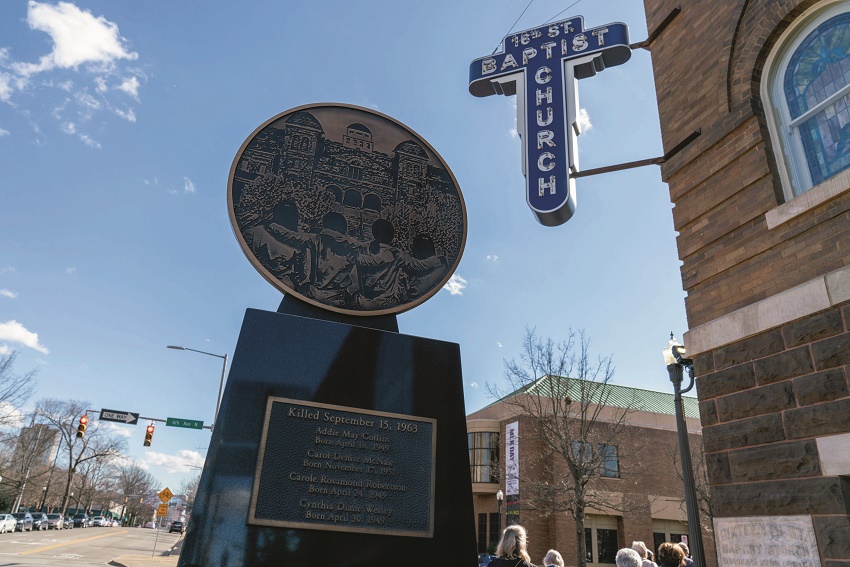
Learning about the Civil Rights Movement from those who lived through it contributes to this life-changing experience. It is, in the words of one Road Scholar, “a voyage we all need to make — with our feet, through our minds and in our hearts.”
Interested reserving a private departure on one of Road Scholar’s transformative learning adventures exclusively for your group? Learn more about bringing your community or family together.
How does your group like to explore? Join the Road Scholar Facebook community and keep the conversation going.
